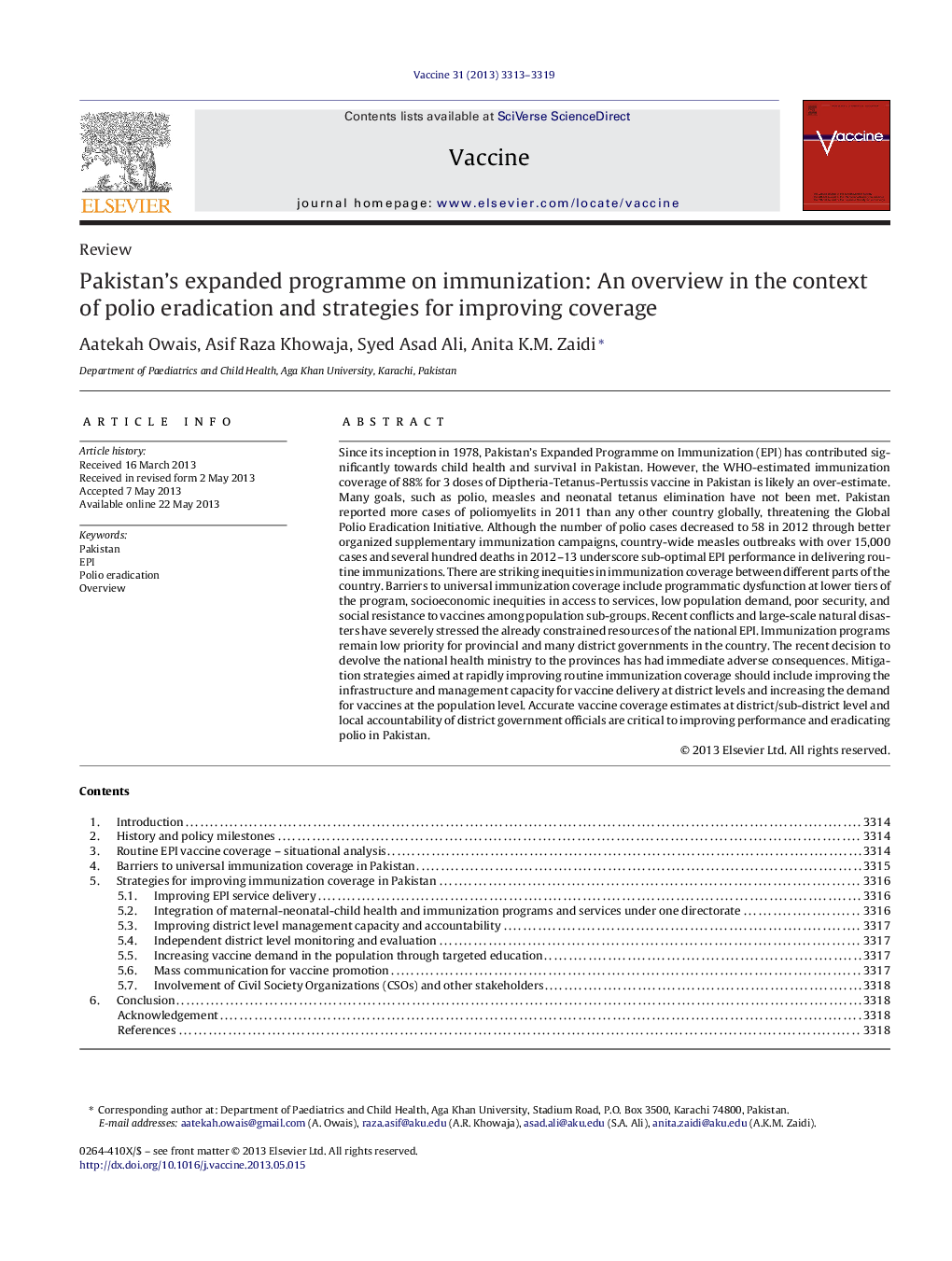| کد مقاله | کد نشریه | سال انتشار | مقاله انگلیسی | نسخه تمام متن |
|---|---|---|---|---|
| 2402812 | 1102854 | 2013 | 7 صفحه PDF | دانلود رایگان |

• Routine immunization coverage remains low in Pakistan.
• Improving routine immunization coverage is necessary for meeting MDG-4.
• We review reasons for low coverage and suggest possible strategies for improvement.
Since its inception in 1978, Pakistan's Expanded Programme on Immunization (EPI) has contributed significantly towards child health and survival in Pakistan. However, the WHO-estimated immunization coverage of 88% for 3 doses of Diptheria-Tetanus-Pertussis vaccine in Pakistan is likely an over-estimate. Many goals, such as polio, measles and neonatal tetanus elimination have not been met. Pakistan reported more cases of poliomyelits in 2011 than any other country globally, threatening the Global Polio Eradication Initiative. Although the number of polio cases decreased to 58 in 2012 through better organized supplementary immunization campaigns, country-wide measles outbreaks with over 15,000 cases and several hundred deaths in 2012–13 underscore sub-optimal EPI performance in delivering routine immunizations. There are striking inequities in immunization coverage between different parts of the country. Barriers to universal immunization coverage include programmatic dysfunction at lower tiers of the program, socioeconomic inequities in access to services, low population demand, poor security, and social resistance to vaccines among population sub-groups. Recent conflicts and large-scale natural disasters have severely stressed the already constrained resources of the national EPI. Immunization programs remain low priority for provincial and many district governments in the country. The recent decision to devolve the national health ministry to the provinces has had immediate adverse consequences. Mitigation strategies aimed at rapidly improving routine immunization coverage should include improving the infrastructure and management capacity for vaccine delivery at district levels and increasing the demand for vaccines at the population level. Accurate vaccine coverage estimates at district/sub-district level and local accountability of district government officials are critical to improving performance and eradicating polio in Pakistan.
Journal: Vaccine - Volume 31, Issue 33, 18 July 2013, Pages 3313–3319